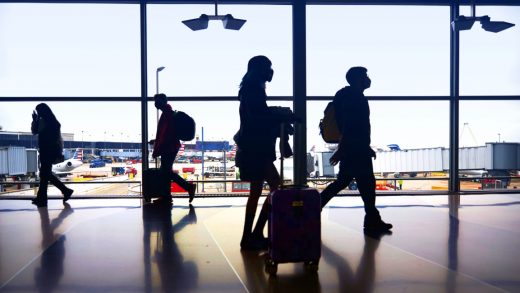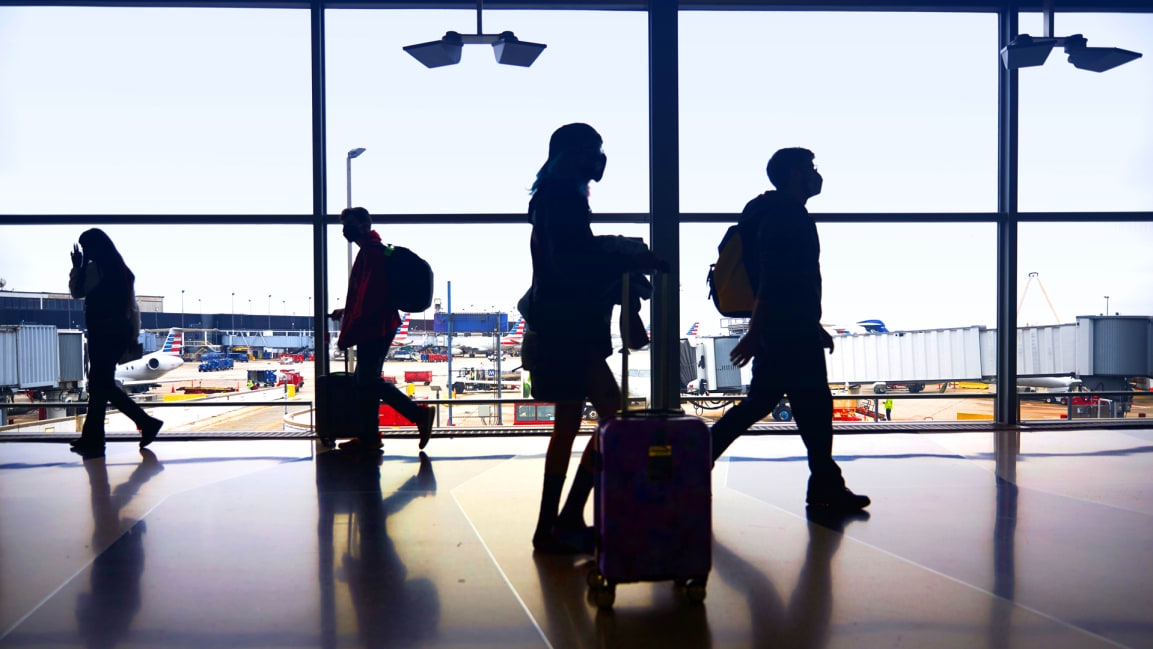The majority of global business travelers are willing to travel for business over the next 12 months, according to an SAP Concur survey, and many are likely preparing for their first trip in more than a year. Understandably, even the most experienced may be wondering how to navigate this new environment.
Below are several scenarios to consider before, during, and after a business trip. A general best practice is to take precautions and follow the guidance of the CDC, which recommends delaying travel until fully vaccinated, wearing a mask over your nose and mouth, maintaining a six-foot distance from others, and washing hands or using hand sanitizer often. If unvaccinated, get a viral test 1-3 days prior to the trip as required.
“I’m uncomfortable traveling for business, but my company requires it. What are my options?” Connect with your manager or HR department to discuss travel itineraries that fit your comfort level. Voice your preferences, and propose alternatives to business trips, such as virtual meetings.
“I’m uncomfortable flying economy during COVID-19. Can I request other seating arrangements?” Health and safety are paramount; it is no longer a given that the least expensive option is the only choice when flying for business. It is appropriate to discuss with management your airline and seating preferences, even if they cost extra.
“Can I request a hotel with a higher star rating?” Pay careful attention to hotels’ COVID-19 policies and cleaning procedures, and do not hesitate to negotiate a stay with a trusted lodging provider.
“I’d rather drive during COVID-19. What are my options?” Using a rental or personal vehicle is an appropriate request to make. Be sure to discuss company policies for expensing these transportation methods to prepare in advance.
“Do I need to wear a mask while traveling?” In the U.S., you are required to wear a mask over your nose and mouth at all times while in an airport, airplane, train, or on mass transit.
“What about physical distancing?” Do your best to maintain a six-foot distance from other travelers. Although you may be vaccinated, other travelers may not be, and it is in everyone’s best interest to keep some distance.
“What if a fellow traveler is not obeying mask requirements or is otherwise being unruly?” This year, there have been nearly 4,000 reports of unruly passengers on airlines according to the Federal Aviation Industry (FAA). Report any harmful behavior like verbal or physical abuse if you witness it. Do not put yourself in harm’s way.
“Can I eat while in an airport or on a plane?” To the extent possible, plan to eat and hydrate prior to boarding to minimize the need to remove your mask during the flight. While on a plane, it may be recommended that you remove your mask to take a bite or sip, then replace.
“Can I request daily housekeeping?” Expect that housekeeping may come to your room once every few days, or not at all, during your stay. This measure shouldn’t be treated as negotiable, as it helps to limit contact, protecting both the hotel staff and travelers.
“What is the etiquette for business meetings?” Be sure that you are clear about the requirements of the office and organization, which may include mask mandates, a temperature check, questionnaire, or proof of vaccination. Additionally, make your preferences clear. For example, while some have resumed handshakes, most will be understanding if you are not comfortable doing so.
“What are the rules of etiquette following a business trip during COVID-19?” All travelers should self-monitor after a trip. Isolate and get tested if you experience any signs or symptoms of COVID-19. The CDC recommends unvaccinated travelers—and the fully vaccinated who are traveling internationally—be tested 3-5 days after travel. Unvaccinated travelers should also isolate for seven days after travel, even after a negative test. You do not need to be tested or isolate if you are fully vaccinated and traveling domestically, although it may offer peace of mind.
“What do I do if I have COVID-19 after a business trip?” Notify your manager and HR representative regarding instructions your company may have established. For the health and safety of anyone in close contact, you should follow CDC guidelines and isolate yourself to protect others from getting infected.
Work from anywhere has proven there is not a one-size-fits-all approach to doing business. The same principle applies to business travel. Each trip presents unique considerations for the modern business traveler. Work with your manager, travel manager, and or travel agent as a partner in designing the right itinerary for your comfort, health, and safety.



